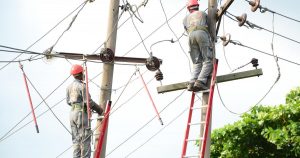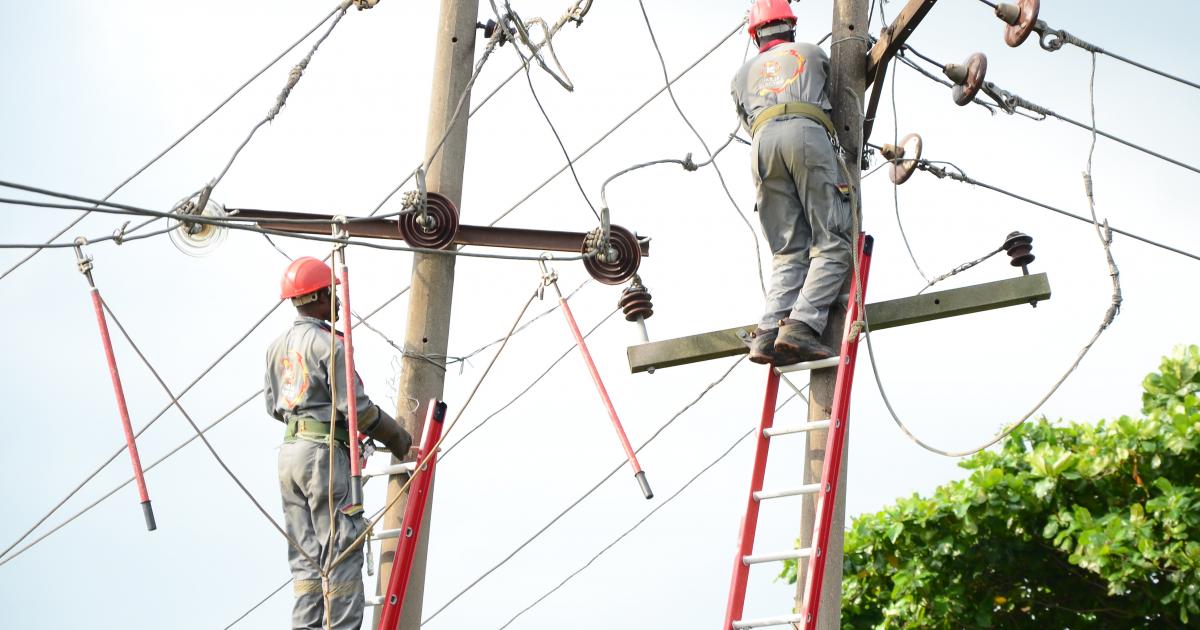The ratio of electricity consumers on estimated billing remained higher than consumers on prepaid metering as at last September, the Nigerian Electricity Regulatory Commission (NERC) has said.
This is contained in the Third Quarter Report 2021 released yesterday on the Commission’s website.
According to the post on its website, 57.07 per cent of electricity consumers were still on estimated billing as at September, last year.
The document showed that only Ikeja, Benin, Enugu and Port Harcourt electricity Distribution Companies had metered over 50 per cent of their customers in the same period.
The NERC noted that the huge metering gap for end-use customers remains a key challenge in the Nigerian Electricity Supply Industry (NESI), it added that a total of 288,431 meters were installed in the third quarter of 2021 as compared to the 315,717 meters installed in the second quarter of last year.

According to the data, out of the 11,069,200 registered energy customers in the period under review, only 4,753,027 (42.93 per cent) had been metered compared to 4,404,013 (39.08 per cent) metered as at June, last year, out of 11,058,939 customers.
NERC in the statement listed the metering status of the DisCos in the review period as Benin DisCo, 54.54 per cent; Abuja, 45.10 per cent; Eko, 43.24 per cent; Ikeja, 63.96 per cent and Enugu , 55.49 per cent. The report further showed that Port t Harcourt had 54.81 per cent; Ibadan, 37.64 per cent; Jos, 29.12 per cent; Kaduna, 21.84 per cent; Kano, 27.64 per cent; and Yola, 17.19 per cent.
NERC, in safeguarding unmetered customers against excessive billing by DisCos by way of estimated billing, had set maximum limits to the amount of energy (in kWh) that may be estimated against an unmetered customer on a feeder. In determining this, the customer category and tariff band with the maximum limits is computed based on three months data of actual consumption records of metered customers according to their category and tariff band.
The document also provided an update on the efforts by NERC to close the metering gap through the Meter Asset Provider (MAP) scheme and the National Mass Metering Programme (NMMP).
“The MAP initiative has since its inception metered a total of 591,223 customers. Similarly, the NMMP is an initiative of the Federal Government of Nigeria launched in 2021 to rapidly bridge the metering gap in the NESI. This is a policy intervention with support from the Central Bank of Nigeria for the provision of long-term (10-year tenure) single-digit interest loans to DisCos strictly for the provision of meters to customers. This policy provides that only local meter manufacturers or assemblers shall participate in the NMMP. Customers are metered on DisCo’s own account without paying for the meters by customers except through end-user tariffs. The NMMP has since its inception metered a total number of 793,978 customers,” the document on NERC’s website read.
Also in the same quarter, NERC stated that a total of 8.693 million Megawatts-hour (MWh) of electricity was generated, noting that the total quarterly generation in the third quarter of lat year was 8.6million MWh, a decrease of 211,903.73MWh (-2.38 per cent) when compared to the total generation of 8,905,673.76MWh in the second quarter of last year.
According to NERC, the total generation of Shiroro plant increased by 113,216MWh (+107.58 per cent) during the period. However, those of Egbin, Okpai and Geregu gas plant declined by 149,379.43MWh (-28.15 per cent), 146,275MWh (52.54 per cent) and 93,808.82MWh (-38.06 per cent) respectively compared to the second quarter of last year.
It attributed the decline in operational performance in the third quarter of last year to the unavailability of some generating units due to faults such as oil leakage, high thrust bearing temperature and high rotor vibration, among others. Maintenance and shortages of gas supply also contributed to the decline in performance.
“To improve this performance, the commission continued consultations with relevant stakeholders to develop lasting solutions to gas supply and other challenges that continue to impede capacity utilisation and, ultimately, electricity generation in the Nigerian Electricity Supply Industry. The commission is also working with the System Operator (SO) towards the creation of spinning reserves to improve the grid’s overall frequency stability,” NERC said on its website.


